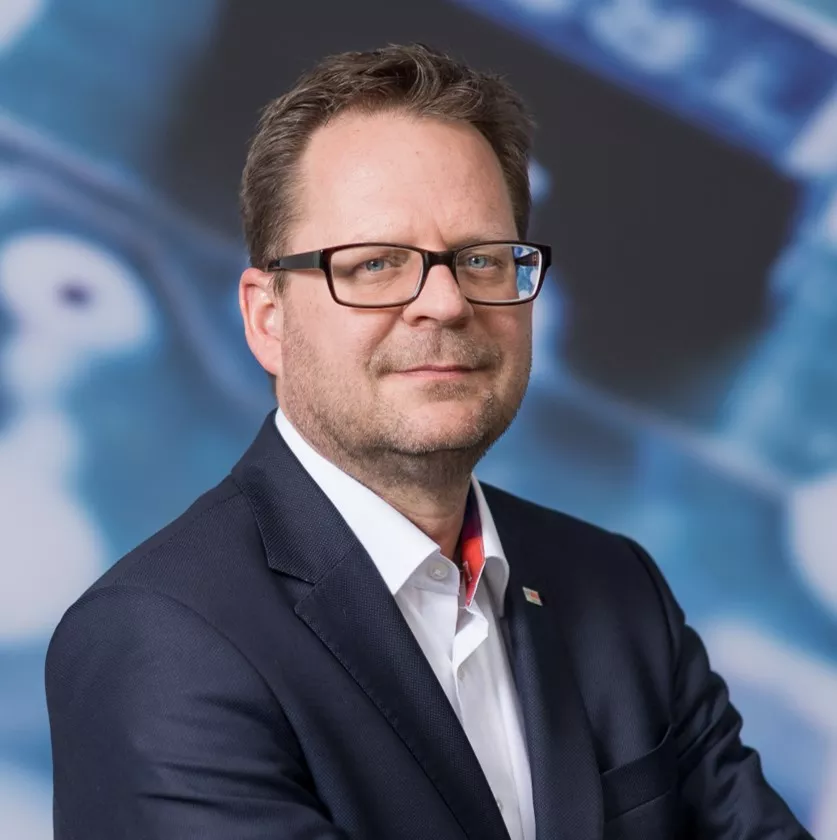
SEMI spoke with Jens Fabrowsky, executive vice president of Automotive Electronics at Robert Bosch GmbH, about changes in the European electronics industry necessary for the region to become more resilient. Fabrowsky shared his views ahead of his participation at the panel discussion What Would It Take to Double European Capacity? at SEMI Industry Strategy Symposium Europe (ISS Europe) on May 30 2022 in Brussels, Belgium.
Join us at the event to meet experts from and many other key industry influencers. Registration is open.
SEMI: What would it take to double European capacity?
Fabrowsky: In order to be more successful, the European semiconductor business has to reduce its dependencies. We need to push our front-end capacity within Europe, focusing not only on companies that are developing and manufacturing chips but also including foundry business.
SEMI: Can the semiconductor industry in Europe handle the challenges on its own?
 Fabrowsky: For us, innovation in microelectronics is the key to Europe's green and digital transformation. For moving the industry forward, a globally competitive investment environment must be created that enables the urgently needed expansion of production capacities in all areas of the semiconductor technology.
Fabrowsky: For us, innovation in microelectronics is the key to Europe's green and digital transformation. For moving the industry forward, a globally competitive investment environment must be created that enables the urgently needed expansion of production capacities in all areas of the semiconductor technology.
SEMI: What is the most pressing next step for the semiconductor industry players to pursue this goal?
Fabrowsky: Digital sovereignty is an important factor for Europe's competitiveness and prosperity as well as high-performance microelectronics that is close to industry. In order to achieve this sovereignty, a concentration of design and manufacturing within Europe is required which is especially true for safety critical components.
SEMI: What political support do you think is most imperative?
Fabrowsky: A rapid adoption of the European Chips Act and swift implementation of the proposed measures are necessary to catch up and regain the strength of this industry, which is so important for Europe. In this case it is really important that the second IPCEI on Microelectronics (Important Project of Common European Interest) funding will be released very soon in Germany.

SEMI: What are your plans in the coming years to expand your business?
Fabrowsky: Bosch develops and manufactures its own electronic key components. In an additional move to combat the ongoing global chip shortage, Bosch plans as a first step to invest more than 400 million euros in 2022 in the expansion of its semiconductor operations in Dresden and Reutlingen, Germany, and in Penang, Malaysia.
SEMI: Why technologies are contributing most to the leadership of the semiconductor business at Bosch?
 Fabrowsky: Invented for life: this claim is our drive. We at Bosch are focusing to improve the quality of lives by developing innovative technologies. Many safety applications in cars like the Electronic Stability Program (ESP) or in smart devices are based on MEMS (Micro-Electro-Mechanical Systems) sensors made by Bosch. Another example of our technological leadership: Bosch is the only automotive supplier worldwide manufacturing power semiconductors made of silicon carbide.
Fabrowsky: Invented for life: this claim is our drive. We at Bosch are focusing to improve the quality of lives by developing innovative technologies. Many safety applications in cars like the Electronic Stability Program (ESP) or in smart devices are based on MEMS (Micro-Electro-Mechanical Systems) sensors made by Bosch. Another example of our technological leadership: Bosch is the only automotive supplier worldwide manufacturing power semiconductors made of silicon carbide.
SEMI: As a company, how do you think the European semiconductor industry should be positioned?
Fabrowsky: It is important that the European semiconductor industry not only invests in manufacturing with the smallest structure sizes as for ASICs (integrated circuits) and SoCs (System on Chips), but also in chips with structure sizes that are most frequently needed in the automotive industry today and also in the future like high-performance MEMS sensors.
 Jens Fabrowsky has served as executive vice president Automotive Electronics of Robert Bosch GmbH since April 2012. He studied mechanical engineering and industrial engineering at the University of Stuttgart (Germany) and the Technical University of Munich (Germany).
Jens Fabrowsky has served as executive vice president Automotive Electronics of Robert Bosch GmbH since April 2012. He studied mechanical engineering and industrial engineering at the University of Stuttgart (Germany) and the Technical University of Munich (Germany).
Serena Brischetto is director of Marketing and Event Operations at SEMI Europe.